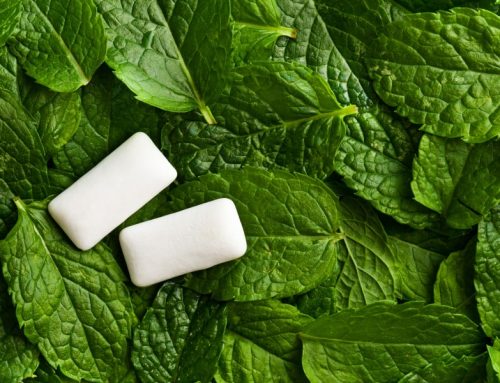Vegetarianism is for you. This diet is in line with your values and principles, and you've been following it for some time or are seriously considering it.
Although studies show that this diet is not harmful in itself, it can lead to certain dietary deficits if not properly planned.
Spotlight on these deficiencies that can affect your general and oral health.
The most common deficiencies [1]
The most frequent deficiencies linked to the absence of animal products in the diet are: vitamin D, B12, calcium and riboflavin.
As well as having consequences for overall health, too little absorption of these elements can compromise oral health.
The importance of vitamin D and calcium
A balanced intake of vitamin D helps to maintain a good periodontal health [2]. Otherwise, the risk of developing gum disease and the dry mouth syndrome are higher.
Calcium, for its part, is one of the most important main constituents of bones and teeth with phosphorus. If there is a deficiency, the potential for caries is increased.
Just as calcium contributes to healthy periodontium, vitamin D helps its absorption. You can't have one without the other!
Iron, riboflavin (B2) and B12 [3]
Red meat, poultry, fish and dairy products are rich in iron and B12. Insufficient intake can result in a variety of symptoms, including :
- Mouth sensitivity and presence of ulcers
- Inflammation of the tongue
- Fatigue and weakness
- Anemia
- Irritability and depression
Well-balanced vegetarianism is possible
To limit the risk of deficiencies, learn to recognize the plant foods that contain these important minerals. Legumes, grain products, seeds and nuts, as well as fruits and vegetables, are excellent options.
Beware of acidic foods
Since vegetarians eat a lot of fruit and vegetables, they are at greater risk of developingdental erosion. It's best to avoid highly acidic fruits, such as citrus fruits, pineapples and kiwis.
Obviously, alcoholic beverages, coffee, soft drinks and juices should be consumed in moderation.
In short, the vegetarian diet is no better or worse than any other. You just need to understand it well enough to plan varied, balanced meals.
If you have any questions about your dental health in relation to your diet, don't hesitate to ask us at your follow-up visit.
Sources :
[1] https://www.passeportsante.net/fr/Actualites/Dossiers/DossierComplexe.aspx?doc=vegetarisme-vrai-faux-on-ne-trouve-de-la-vitamine-b12-que-dans-les-produits-animaux-faux
B12 deficiency = https://www.ncbi.nlm.nih.gov/pmc/articles/PMC4042564/
Fumio Watanabe, Yukinori Yabuta & al. Vitamin B12-Containing Plant Food Sources for Vegetarians, Nutrients. 2014 May; 6(5): 1861-1873.
Other deficiencies = https://www.ncbi.nlm.nih.gov/pubmed/2801576
Millet P., Guilland J.C., Fuchs F., Klepping J. Nutrient intake and vitamin status of healthy French vegetarians and nonvegetarians. Am. J. Clin. Nutr. 1989;50:718-727. [PubMed]
[2] https://www.oralhealthgroup.com/features/nutrition-update-dietary-protein-for-periodontal-health/
[3] https://www.express.co.uk/life-style/health/1113062/vitamin-b12-deficiency-symptoms-signs-foods-diet-tongue-pain





Leave A Comment
You must be logged in to post a comment.